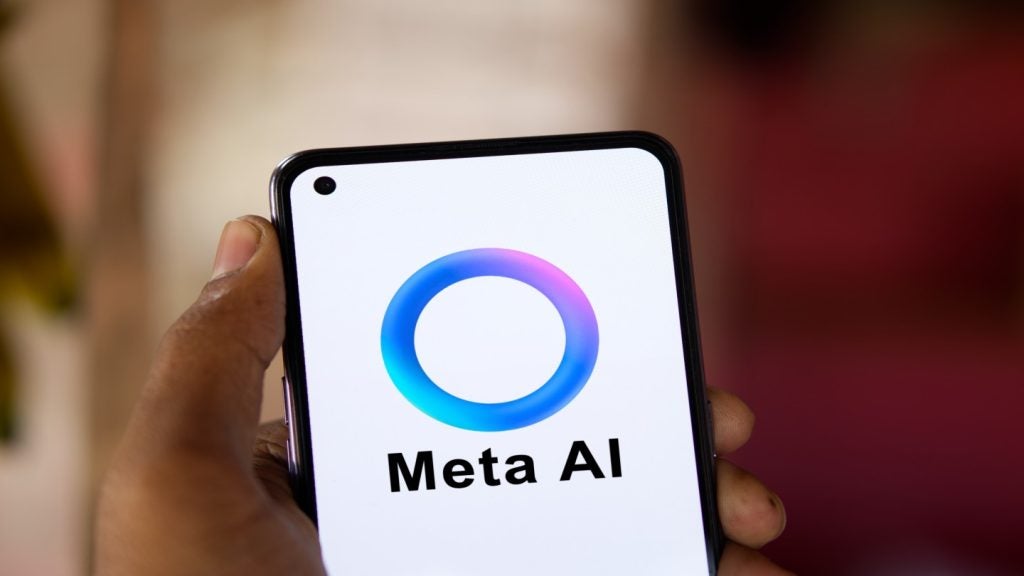
The metaverse should make everyone worried about their privacy. That’s the sentiment shared by a number researchers and market stakeholders Verdict has spoken to. However, these concern tend to be lost by the wayside when people talk about the metaverse.
Meta CEO Mark Zuckerberg, for instance, has rarely mentioned them during the string of disastrous virtual world presentations he’s made over the year to drum up support for his version of the metaverse. Neither have the critics who’ve panned them. Instead, they have made fun of the Zuck’s wooden delivery, awkward examples of how doing things in augmented reality (AR) and virtual reality (VR) is in any way better than meeting people IRL, and the shockingly bad graphics designed by Meta.
However, entertaining as these missives are, they tend to miss the point about what will happen with the privacy in the metaverse. Not only is this a pertinent question given Meta’s track-record of privacy scandals, but because the expanding scope of the metaverse.
Research firm Gartner has predicted that 25% of the global population will be logging on to the metaverse for at least an hour a day by 2026.
Meta also doesn’t have a monopoly on it. It seems like every company from Disney to Microsoft, from Epic Games to Lenovo, is investing heavily in developing their own version of the metaverse. Companies is investing millions into their own section of the metaverse with things like cloud computing, web3, artificial intelligence and more.
As it stands, the metaverse is in its extremely early stages, meaning that many issues with privacy and data are not yet fully realised. That being said, market watchers believe the need for privacy must be at the forefront of regulators’ and users’ minds already.
How well do you really know your competitors?
Access the most comprehensive Company Profiles on the market, powered by GlobalData. Save hours of research. Gain competitive edge.

Thank you!
Your download email will arrive shortly
Not ready to buy yet? Download a free sample
We are confident about the unique quality of our Company Profiles. However, we want you to make the most beneficial decision for your business, so we offer a free sample that you can download by submitting the below form
By GlobalData“The metaverse as it stands is still at an early stage and as technology improves, we will see uses that we could not even imagine today,” Lauren Hendry Parsons, privacy advocate at VPN service ExpressVPN, told Verdict:
So while Zuckerberg still hasn’t offered a deep and robust cybersecurity infrastructure especially for the metaverse, despite confidently claiming Meta wants to get one billion users on VR, the warning has been raised that it’s time to take privacy seriously.
“The use of AR, VR, and advertisements will be integral in metaverses, which, in turn, will bring data privacy concerns to the fore,” Rupantar Guha, analyst at research firm GlobalData, told Verdict.
What are the privacy issues that could arise in the metaverse?
There’s a range of ways the metaverse could impact the privacy of its users. Modern cybercrimes have already started to appear since the beginning of the inception of the metaverse – like non-fungible tokens (NFT) hacks that resulted in a whopping loss of around $52m in the first four months of 2022 alone, as Silent Breach reported.
As the metaverse continues to expand with NFTs and cryptocurrency being brought further into the mainstream, it’s fair to say that the opportunity for hackers will expand with it.
“As the metaverse grows, I think keeping on top of privacy as a whole will be its biggest issue,” Michelle Stark, sales and marketing director at domains and hosting providers Fasthosts, told Verdict.
“An influx of new devices, and platforms, to access these digital worlds is only going to open more and more loopholes for hackers and phishing scammers to exploit.”
As well as hackers, data theft is another key issue that has to be tackled as the metaverse expands. With so much going on, the metaverse will be accommodating a huge amount of intellectual property and sensitive data that will need to be protected.
“Dragging passwords into the metaverse is a recipe for breaches,” Rick McElroy, principal cybersecurity strategist at cloud computing company VMWare UK, told Verdict.
The privacy of data has been key in the rapid development of the internet by regulators, governments and individuals. If the metaverse truly becomes a ‘second world’ where individuals operate an avatar to “exist” in it – the amount of data sharing will increase exponentially.
“The transfer and use of big data need to be controlled and regulated in the same way as other online platforms,” Dhana Doobay, head of technology, media and telecoms at international law firm Spencer West, told Verdict.
“Strict compliance with notice and consent requirements to protect the use of personal data must be a given as the metaverse community expands.”
GlobalData is the parent company of Verdict and its sister publications.







